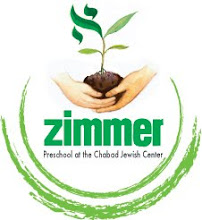As we experience the fall season, we begin to feel the effects of the climate changing.
We feel the cold temperature and the cold wind outdoors. One way we adapt is by dressing in warmer clothes.
But what about the animals where their home is the cold outdoors, how do they respond to the climate changes?
We have discussed some of the animals that live near us in New Jersey and their behavior.
Today we witnessed how one animal, the horse, adapts to the cold weather. To our benefit, we had a wonderful opportunity to see first hand how the horse prepares itself for the fall and winter cold.
Puck, a miniature horse of the Tendler family visited us in school today. He has long thick brown fur, cozy and warm for the winter. However he did not always have long hair. We saw pictures taken of Puck in the summer time. Here we noticed that Puck’s fur on his back and tummy was very short. Some of us remember when he came to visit us in camp over the summer. His body knows that colder months are ahead and his fur grows long to protect him. Then when the warmer weather starts to approach Puck will begin to lose this long warm cozy fur.
Here are some of the things the children enjoyed about having Puck.
"I like to brush his long hair."
"I like to pet him, he is soft."
"He was running so fast."
"I was brushing his back."
"He had so much dirt that was so smelly on the bottom of his foot."
"I like giving him carrots and apples."
"I like to touch him."
 Listening to some new and interesting information about Puck and other horses.
Listening to some new and interesting information about Puck and other horses. We quickly became comfortable around Puck. Here Delia is feeding Puck one of his favorite treats - carrots.
We quickly became comfortable around Puck. Here Delia is feeding Puck one of his favorite treats - carrots. One thing horses like to do is run fast. We watched as Puck ran in our school playground. His hair is so long you can see it 'flying' as he runs!
One thing horses like to do is run fast. We watched as Puck ran in our school playground. His hair is so long you can see it 'flying' as he runs! Now that Puck's hair is long to keep him warm during the cold months there is lots to brush. There are different size brushes for the different parts of his body. Puck especially likes when he gets a message.
Now that Puck's hair is long to keep him warm during the cold months there is lots to brush. There are different size brushes for the different parts of his body. Puck especially likes when he gets a message.The children are gaining a sense of respect and connection to animal life from these encounters with Puck.
Thank you again Rachel for giving the children such a positive and educational experience.
See everyone at the Thanksgiving Feast on Wednesday at 11:30 a.m.
Morah Batsheva


No comments:
Post a Comment